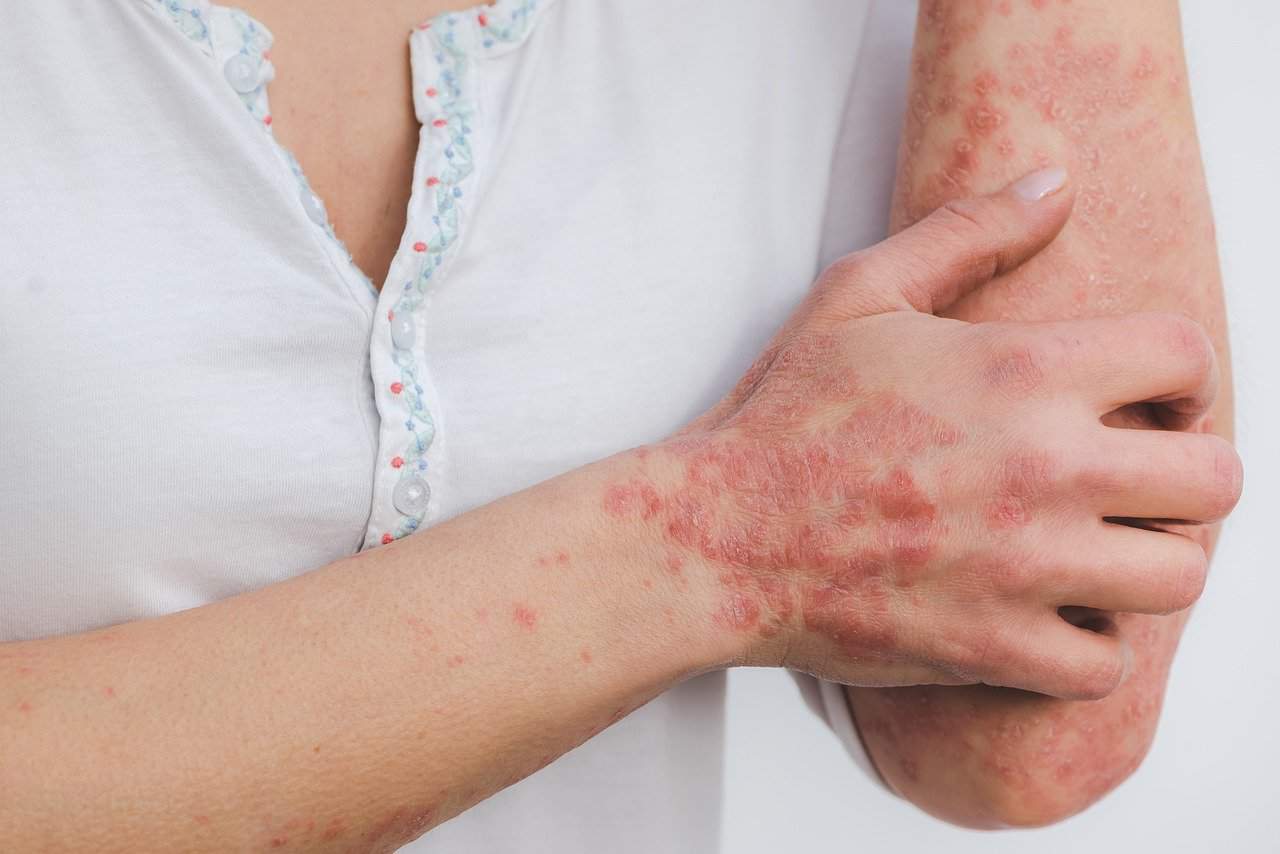Pegasus skilled caregivers in Newhall and elsewhere know the difficulty of living with a chronic disease. It can take a mental as well as physical toll on individuals. Understanding the psychological impact of psoriasis is a crucial part of your career as a home health care nurse.
Psoriasis is one of the many autoimmune diseases. Healthy skin cells develop slowly and usually fall off within a month. Psoriasis speeds up the production of new skin cells.
The rapid growth of new cells doesn’t give the skin time to shed the old cells. Those cells accumulate on the surface of the skin. Inflamed patches of red skin that may crack and bleed are the result.
A Variety Of Symptoms Distinguish Psoriasis
Additional physical symptoms on or around the patches include:
- Itching or burning
- Silvery scales or plaques
- Soreness
Nails may thicken or become pitted.
Psoriasis also affects the joints of many individuals, compromising their ability to move freely. Some can no longer care for themselves unaided.
Millions of individuals have psoriasis, with plaque psoriasis being the most common of the five types. The appearance of the patches and their location varies according to the type. Different individuals also experience varying symptoms.
There is no cure yet for psoriasis. It’s a chronic disease that cycles through flare-ups and periods of remission. The cycles vary from weeks to months to years.
Apart from the disease itself, psoriasis leads to or worsens comorbidities. These include:
- Autoimmune diseases
- Cardiovascular disease
- Conjunctivitis, blepharitis, or uveitis
- Diabetes
- Hypertension
- Obesity
As well as the changes in appearance that a disease like psoriasis causes, most individuals are coping with hidden symptoms. They may feel tired all the time or live with daily pain.
The Psychological Impact Of Psoriasis
Any chronic illness disrupts life. Individuals know that their disease will never go away no matter what they do. That has a significant impact on their emotional health.
The cycling between psoriasis flare-ups and remission can turn into a vicious circle for some people. Mental health issues are one result of a flare-up. Unfortunately, those same issues are among the causes and worsening of flare-ups.
Despite the appearance, psoriasis is not infectious or contagious. But it is stigmatizing for many individuals. That creates additional psychological issues for some of your patients.
Psoriasis affects all aspects of their life for most individuals. They feel isolated and alone in their struggles. Part of your health care includes providing factual information on how to talk to others about their condition.
Additionally, individuals can experience feelings such as:
- Embarrassment
- Guilt
- Helplessness
- Low self-esteem
- Shame
- Worthlessness
Individuals also experience anxiety, depression, and other mental health issues. Approximately 10 percent contemplate suicide.
You can make a difference in the quality of life for your psoriasis patients. Use your knowledge as a nurse to reassure them that they are not at fault for their illness. If necessary, you can arrange for them to receive counseling.
Discovering What Triggers Psoriasis Flare-ups
Flare-ups usually have a trigger. Encourage your patient to start a journal to help discover what causes their flare-ups. Common triggers include:
- Anxiety
- Cold, dry weather
- Depression
- Excessive alcohol consumption
- Infections
- Medications
- Smoking and second-hand smoke
- Stress
- Sunburn or other skin injuries
Because you are spending one-on-one time with your patient, your observations will help discover triggers. The nature of many triggers reveals the key to eliminating them.
For example, you can evaluate their medications and work with their physician to potentially change kind or dosage. Help them or family members attend smoking cessation classes. Discourage alcohol consumption.
Of all the physical or mental psoriasis triggers, stress is probably the biggest culprit. And the disease itself is a major cause of stress. That makes teaching stress reduction particularly important.
Treatments For Psoriasis
Treatments for psoriasis are usually based on stopping the overproduction of skin cells. Most treatments also serve to remove the scales. The severity of the condition is one of the factors in choosing the best treatment.
Your patient may have started with over-the-counter corticosteroids and progressed to prescription strength. Corticosteroids aren’t usually effective in the long term. Other drugs are available in creams, ointments, lotions, and shampoos.
Light therapy is effective for some individuals. That can range from brief exposure to natural sunlight to UVB light to a laser. There are also a variety of systemic drugs from which a physician can select.
Every treatment has a side effect, so you’ll be monitoring your patient’s reactions. When a therapy gives relief from a flare-up, then work with the individual on pinpointing triggers. That can help prolong their relief.
You can also assist them with coping with symptoms. Show them how to choose clothing that doesn’t exacerbate their condition. If their physician hasn’t done so, recommend moisturizers that soothe itching and irritated skin.
Pegasus is a licensed Home Care Organization and a Joint Commission Accredited Home Health Care organization. Our skilled caregivers in Newhall and our other locations provide the assistance that individuals with chronic illnesses require. Understanding the psychological aspects of psoriasis is an integral part of your career as a home health care nurse.

